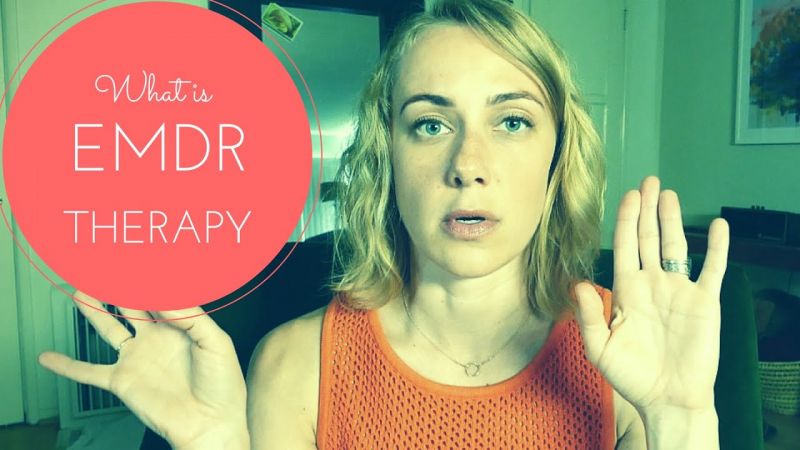Why Psychotherapy is Helpful for PTSD
No one should have to suffer in silence. If you're hurting, there are treatments that can help.
Escrito por Natalie Buchwald

01 Living through a pandemic can be triggering, especially for those with PTSD. Being stuck at home alone with one’s thoughts, or confined with family, can take a toll and worsen symptoms. If you're struggling, you're not alone.
02 In this article, Natalie discusses the power of talk therapy, CBT and EMDR as potential PTSD treatment options.
03 Never hesitate to reach out to a mental health professional if you're having a tough time. Even during a pandemic, they can help you find relief and develop a healthier outlook on life.
Natalie Buchwald, LMHC is the founder and clinical director of Manhattan Mental Health Counseling.
Post-traumatic stress disorder (PTSD) is hard to live with, especially when left unaddressed.
Thankfully, there are several proven treatments available for people with PTSD. For most, a productive treatment plan involves some combination of medication and therapy. It's important to remember that what works for one person, might not work for another. Patients should try multiple approaches if they are feeling unsatisfied with their regime.
In the best few weeks, coping has been made even more complicated by the current covid-19 pandemic. Living through a pandemic can be triggering, especially for those with PTSD. Being stuck at home alone with one’s thoughts, or confined with family without room to breathe, can take a toll and worsen symptoms. If you're struggling, you're not alone. This will pass. Take things day-by-day and lean on those close to you.
If possible, look into at-home treatment options, such as teletherapy or digital peer support. Luckily, more and more professionals are investing in online solutions. Let's explore some of these options, and discuss why psychotherapy in particular can be an effective method.
Licensed Mental Health Professionals Can Treat PTSD
The first step in addressing your mental health, is knowing what kind of professional to look for. There are lot of terms out there — psychiatrist, psychologist, mental health counselor.
Psychiatrists have extensive education in diagnosing and treating psychological disorders. They are able to prescribe medication and administer PTSD therapy.
Licensed mental health counselors (LMHC) are also well-suited to treat PTSD. LMHCs are “talk therapists” — they do not prescribe medication. Mental health professionals are qualified to help people with a broad range of psychological and relationship-based problems using various forms of psychotherapy. Some LMHCs specialize in the treatment of PTSD and might have pursued post-grad training on PTSD.
Finding the right option for you may require meeting with several professionals to see who best fits your unique needs. The added challenges of the pandemic can make some people feel limited in their treatment options. That said, most professionals have adopted telehealth, meaning you can now meet with them via video conference.
Cognitive Behavioral Therapy (CBT) Can Change Harmful Patterns
One of the most effective types of psychotherapy for treating PTSD is cognitive-behavioral therapy (CBT). CBT focuses on treating both short and long-term symptoms, making it a desirable psychotherapy method. Typically, CBT is trauma-focused for individuals with PTSD. Mental health professionals can help you identify and better understand the trauma you faced in order to change thinking and behavior patterns.
In most cases, you’ll meet with a mental health professional who is skilled in CBT on a weekly basis. In addition to in-person meetings, your mental health professional will likely give you tasks to engage in outside of appointments in order to improve symptoms. In most cases, CBT treatments last 12 to 16 weeks.
Given the current circumstances, most in-person meetings are being put on hold, however, you can still meet with a CBT professional online and perform some tasks at home. For example, you’ll still be able to do Thought Investigations and Acceptance Exercises.
EMDR for PTSD Treatment
Eye movement desensitization and reprocessing (EMDR) is a newer type of psychotherapy that is often used to treat PTSD. EMDR uses a patient's own rapid eye movements to lessen the power of memories of past traumatic events that may have strong emotions attached to them.

What is EMDR Therapy?
Licensed therapist, Kati Morton, explains Eye Movement Desensitization & Reprocessing therapy.
EMDR treatment typically consists of a 60-minute session during which your therapist moves one or more fingers in front of your face in a back-and-forth motion, asking you to follow with your eyes. During this process, the therapist will ask you to remember an emotionally charged event, along with any associated feelings and body sensations. As the session progresses, the therapist will gently encourage you to shift these disturbing thoughts to more pleasant ones. In some cases, a therapist may use the tapping of toes, musical tones, or hand movements instead of their fingers.
Your therapist will likely ask you to rate your level of distress — once before the session and then after. Since EMDR’s purpose is to weaken the impact of negative emotions, the goal is to make powerful, upsetting memories less disabling over time.
PTSD is painful but can be effectively treated. Those experiencing symptoms should consider the different treatment options available to them, including psychotherapy, CBT, EMDR, and medication. Finding the right combination of treatment for your unique needs is paramount.
As we move forward through the pandemic, most patients will see an increase in symptoms as they continue to self-isolate. Never hesitate to reach out to a mental health professional if you're having a tough time. Even during a pandemic, we can help you find relief and develop a healthier outlook on life.
Sobre el autor
Natalie Buchwald, LMHC is the founder and clinical director of Manhattan Mental Health Counseling. As a practitioner of holistic psychotherapy, her treatment approach places an emphasis on the mind-body relationship.
Apoya nuestro trabajo
Nuestra misión es cambiar la manera en que el mundo percibe la salud mental.



















